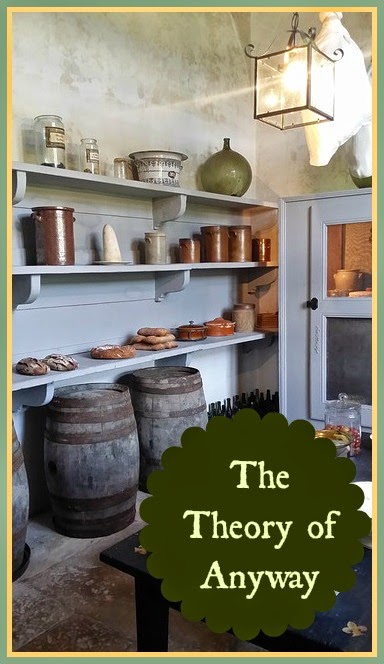I look at my annual budgets for everything and anything, and I look to see where I can save the most money on those items. Saving 30% to 50% buying in bulk - replenishable items from toothpaste to soup, or whatever I use a lot of - is the best guaranteed return on investment you can get anywhere.
~Mark Cuban
Sharon Astyk has reviewed a theory related to emergency preparedness that she calls the "Anyway Project". She relates that you can make changes that help prepare your family for emergency situations and that are good changes to make "anyway".
For example, gardening is a good way to grow your own food supply to have in an emergency but it is a good idea "anyway" in order to provide your family with healthier, more nutritious foods. Or, hanging your laundry on the clothes line is a good way to decrease your electric bill but it is a good idea "anyway" in order to decrease the need for electricity to be produced by coal-burning processes. What examples of "anyway" do you practice?
Stocking your pantry is one of those "anyway" projects you can build upon to protect your family in difficult times. Those difficult times may come in the form of a natural disaster in your area or perhaps, even an emergency hit on your budget that leaves too little money for groceries.
Buying food in bulk that will store easily AND that you will use regularly is a key component of preparedness. These are the foods basics that can be used in many ways to prepare different meals thus ensuring a constant rotation of product so that nothing spoils or goes to waste. For example, if you cook a pound of dried pasta every other week, why not buy 26 pounds and have all you need for the year? It will not be on your weekly grocery list anymore and you can purchase it at the very best price in bulk. This will help both your budget and peace of mind.
Things to consider in this process are to determine which foods are suitable for longer storage, how you will store them and where you will store them. The Survival Mom lists some items to consider:
Beans Dried Pasta Grains Sugar
Cocoa Honey Tomatoes Yeast
Salt Oil Rice Peanut Butter
The key factors to long term dry food storage are Temperature, Container and Moisture Level.
Temperature: Optimal is 50 degrees Fahrenheit
Container: Airtight, hard containers (to avoid mice) and filled to as close to full as possible to avoid air space ( I use canning jars often)
Moisture Level: As dry an area as possible
To get started, pick one item that is on your grocery list often and calculate how much you would need for six months to one year. Once you know that, search for the best price and make your purchase. Store appropriately and then relax! You have prepared your family for an emergency by making a purchase you would have made "Anyway" over the course of the year. I'm so proud of you!
Thanks for visiting today, I hope you find this post useful. Leave a comment if there is any other topic you would like to see in a future post - I bet it is something I would like to learn about too! Tomorrow we will Make Monday Matter by helping someone register to vote...one of the greatest privileges of our country available to us. I hope to see you then.
Peace be with you,
Star Schipp
This post may contain affiliate links which
means if you make a purchase using one of those links, I may receive
compensation at no extra cost to you. It is a great way to support your
favorite hobby farm blogger. Thank you!



No comments:
Post a Comment